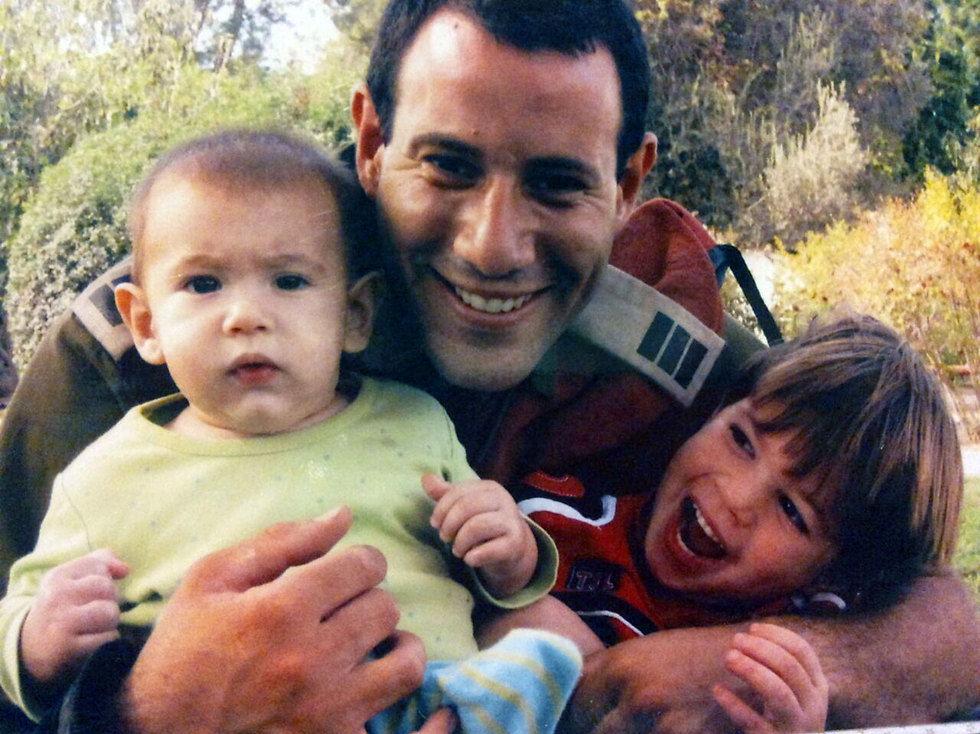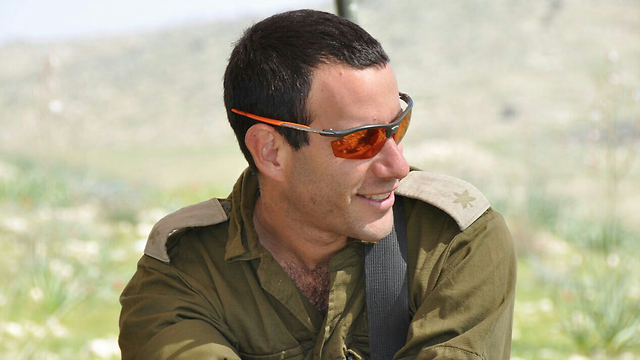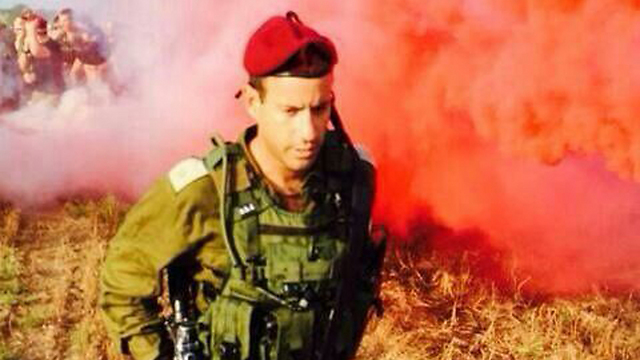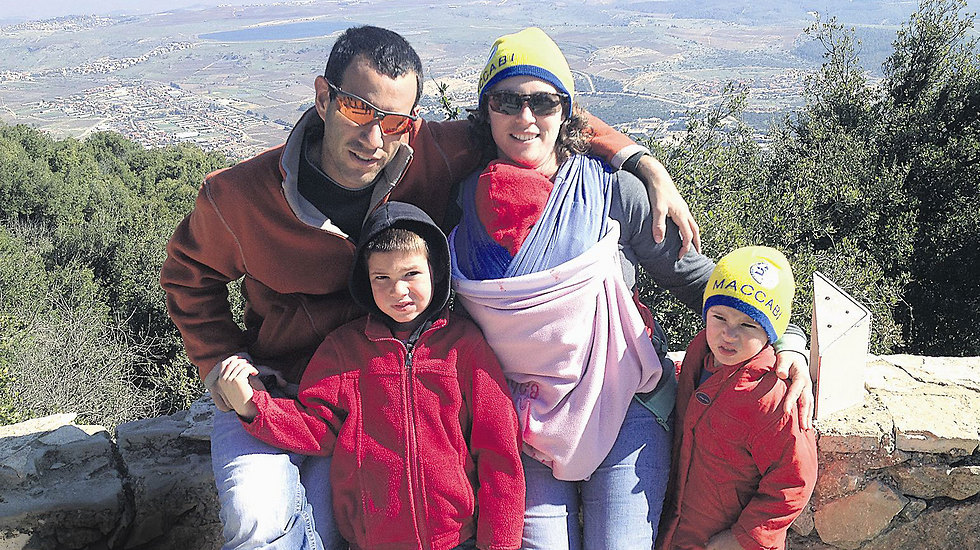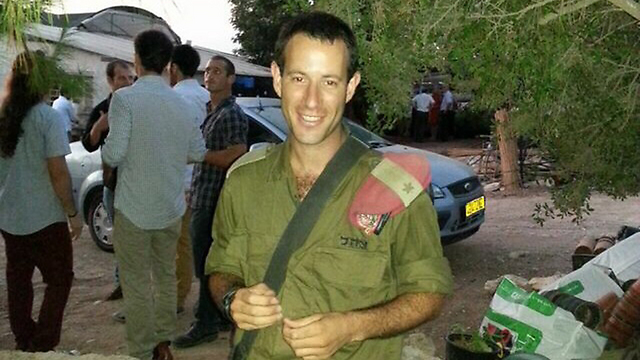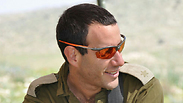
Hagai Ben-Ari
באדיבות המשפחה
Paratroopers’ officer critically wounded in Protective Edge passes away
Maj. Hagai Ben-Ari, a highly-regarded officer who was supposed to be appointed commander of the Paratrooper Commando Unit, suffered a brain injury from a sniper bullet in Gaza. Over two years later, he succumbed to his wounds.
Maj. Hagai Ben-Ari, who was critically wounded during the 2014 Operation Protective Edge and had been unconscious since then, passed away on Tuesday.
In his passing, he became the 68th IDF soldier killed in the Gaza war. His funeral will be held at 2pm Wednesday at Moshav Haspin's cemetery.
The 31-year-old officer was highly-regarded and was supposed to be appointed the commander of the Paratrooper Commando Unit.
On July 21, 2014, five days after the beginning of the IDF's ground operation in Gaza, Ben-Ari was critically wounded when a sniper bullet bore through his helmet and hit his head.
He was airlifted to the Soroka Medical Center in Be'er Sheva, where he underwent a series of operations in an effort to save his life. Eventually the doctors determined his injury was so severe he had no chance of recovery and said it was a miracle he was still alive.
In the two years that have passed, Ben-Ari's body was able to overcome complications and infections, but he remained unconscious and did not communicate with his surroundings.
He remained fairly anonymous until October 2014 when, after his condition deteriorated, the then-commander of the Paratroopers Brigade, Col. Eliezer Toledano, decided to symbolically appoint him the commander of the Paratrooper Commando Unit, where Ben-Ari filled many key positions.
The Ben-Ari family was on vacation in Israel's southernmost city of Eilat when Operation Protective Edge broke out and Hagai was called to fight.
"I cried a lot when he went to fight, not because I thought something would happen to him but because I was left alone with the three children in Eilat," his wife, Moriya, said in a past interview. "When I saw how bummed out the children were, we decided that not only were we going to stay, we were also going to make it fun."
Moriya said that in the week that followed her husband's injury, "we still had hope. But very quickly we realized there wasn't any hope. That realization was so hard."
Shortly before the war, Hagai and Moriya finished building their home in Moshav Nov in the Golan Heights, where they were both born and raised.
After he was injured, the Defense Ministry funded the construction of a small unit for Hagai outside his parents' home, equipped with everything needed to take care of him.
In July 2015, a year after he was injured, Hagai returned home. The spacious room was decorated with a lot of photos of him in uniform, with his children, with his soldiers, and with his parents.
His soldiers admired him. Even long after he was injured, friends kept visiting, coming to embrace him, talk to him, and encourage him.
"There is something about Hagai," one friend explained in a past interview, "which makes us want to be near him, not leave, not settle for our daily routine. He is part of this routine and will remain that way."
"Hagai had a rare quality of being able to touch people," Moriya said in an interview with Ynet's print publication Yedioth Ahronoth in October 2015. "Make them feel that they're his best friend. A kind of exceptional emotional intelligence that made people admire him and want to share their deepest secrets and plans with him and seek his advice. I'm not surprised by this. We've been together since we were 16 and I know who Hagai is."










